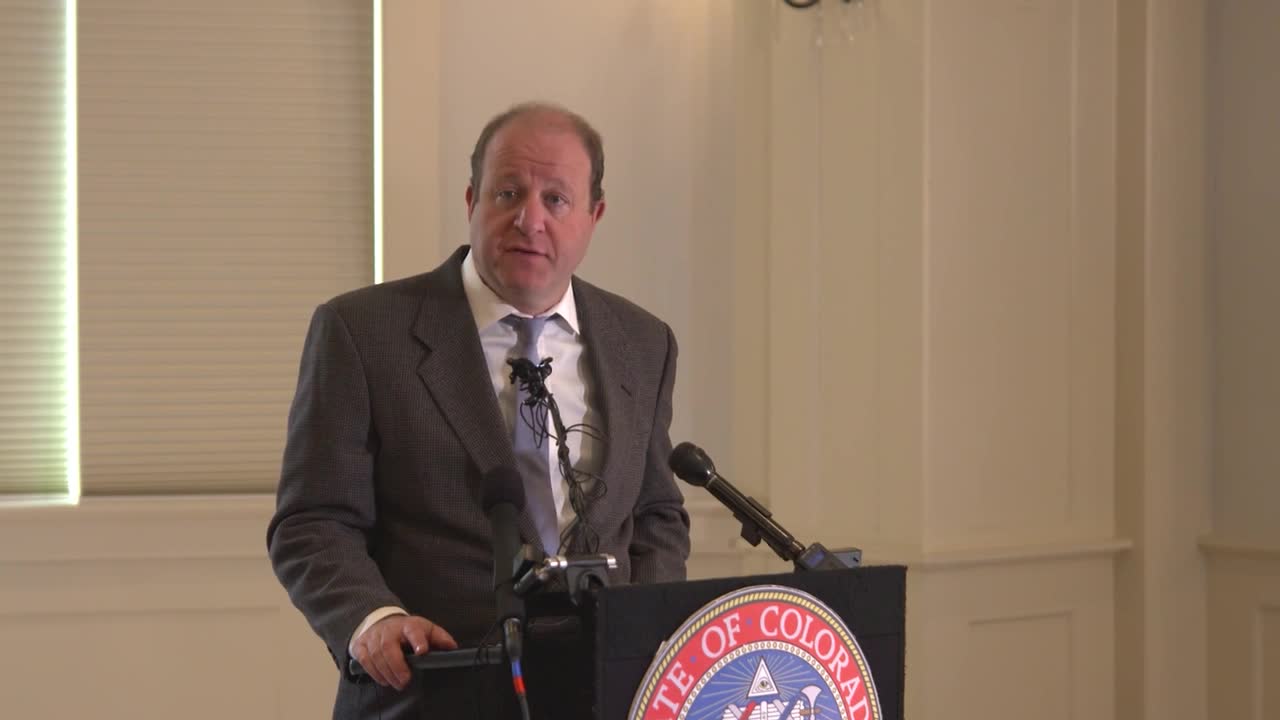DENVER — Colorado’s special session is over, but there’s still more work to do to address the state’s $783 million budget gap. Most of that work will fall to Governor Jared Polis.
Colorado’s Democratic legislative leaders have a three-part plan to address the budget gap. They took care of one part of that plan during their six-day special session when they cut several corporate tax breaks.
"I'm grateful my colleagues didn't shy away from this challenge,” said Senate President James Coleman, D-Denver. “We faced it head-on. We rolled up our sleeves. We acted like the adults in the room."
But they’re leaving the other two parts of the plan to the governor.
The Scripps News Group has been following Colorado's special legislative session. Read our previous coverage below:
- Denver7 presses lawmakers on how they plan to address the state's $1B budget gap
- State lawmakers return to Colorado Capitol for special session to address massive budget gap
- Colorado lawmakers take on corporate tax breaks, SNAP funding in second day of special session
- Special session: Colorado lawmakers introduce bill to ease pain of rising health care premiums
- Colorado's special session comes to dramatic end with collapse of AI deal, tense moments between House leaders
- Colorado Republicans, Democrats disagree on how much progress was made during special session
Democratic leaders estimate the state will have to take $200 million to $300 million from state reserves and cut spending by up to $300 million, but where will those cuts come from? House Speaker Julie McCluskie said lawmakers aren't sure.
“I think that we're going to be hard pressed, really, to avoid cuts in any one particular area,” said McCluskie, D-Dillon. "I think in my conversations so far with the governor's team, they are turning over every rock.”
On the other side of the aisle, the rumor mill is churning about what the governor will do.
"Rumor is that Governor Polis is going to cut access to health care to 1.2 million people in our state by cutting the Medicaid provider rates,” said State Sen. Barbara Kirkmeyer, R-Brighton, a member of the legislature’s Joint Budget Committee (JBC). “You cut the rate that we pay providers, you damage access for the 1.2 million people that are on Medicaid. That is just wrong."
Denver7 asked the governor's office about what he plans to cut. The governor said President Donald Trump and the Republicans' tax and spending bill was putting Colorado in this position.
“H.R.1 is forcing Colorado to make significant cuts and we are trying to minimize the amount of harm this bill will cause Coloradans where possible, while preserving our schools, roads, and health care infrastructure,” Polis said in a statement. “We are looking at all options for potential cuts, including previous cuts included in my budget proposal that were not adopted by the legislature. We will have more information to share with Coloradans later this week about the harmful impacts of H.R.1 on the state.”

State
State workers worry about impact of Colorado's hiring freeze on various agencies
The governor may have provided a clue earlier this month when Denver7 asked him about possible cuts to fix the budget gap, and how those cuts would impact Coloradans.
“We would begin with some of the cuts that we’ve proposed in years past that the legislature did not accept,” Polis said. “And those are real cuts, and they affect people. Things like, for instance, capping dental benefits for Medicaid as an example."
Polis said there is one thing he would not support cutting.
“I also want to be clear that I would oppose any efforts to cut education funding," the governor said. "I’m confident that there will be no cuts to education funding in our schools as part of this."
During the special session, lawmakers passed a bill giving the JBC more oversight when the governor makes cuts while they are out of session.
The governor’s team will present its plan for spending cuts to the JBC on Thursday.




